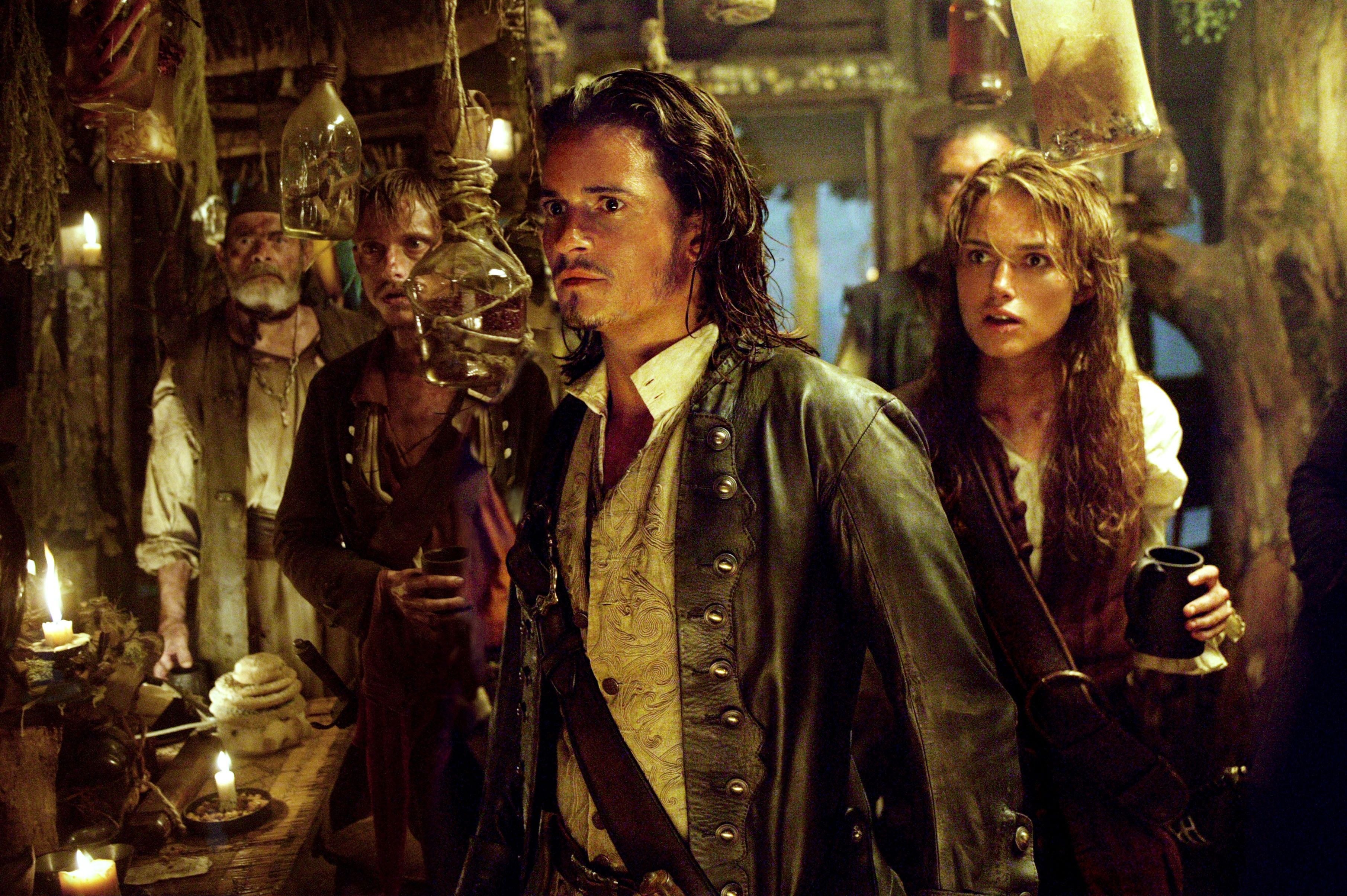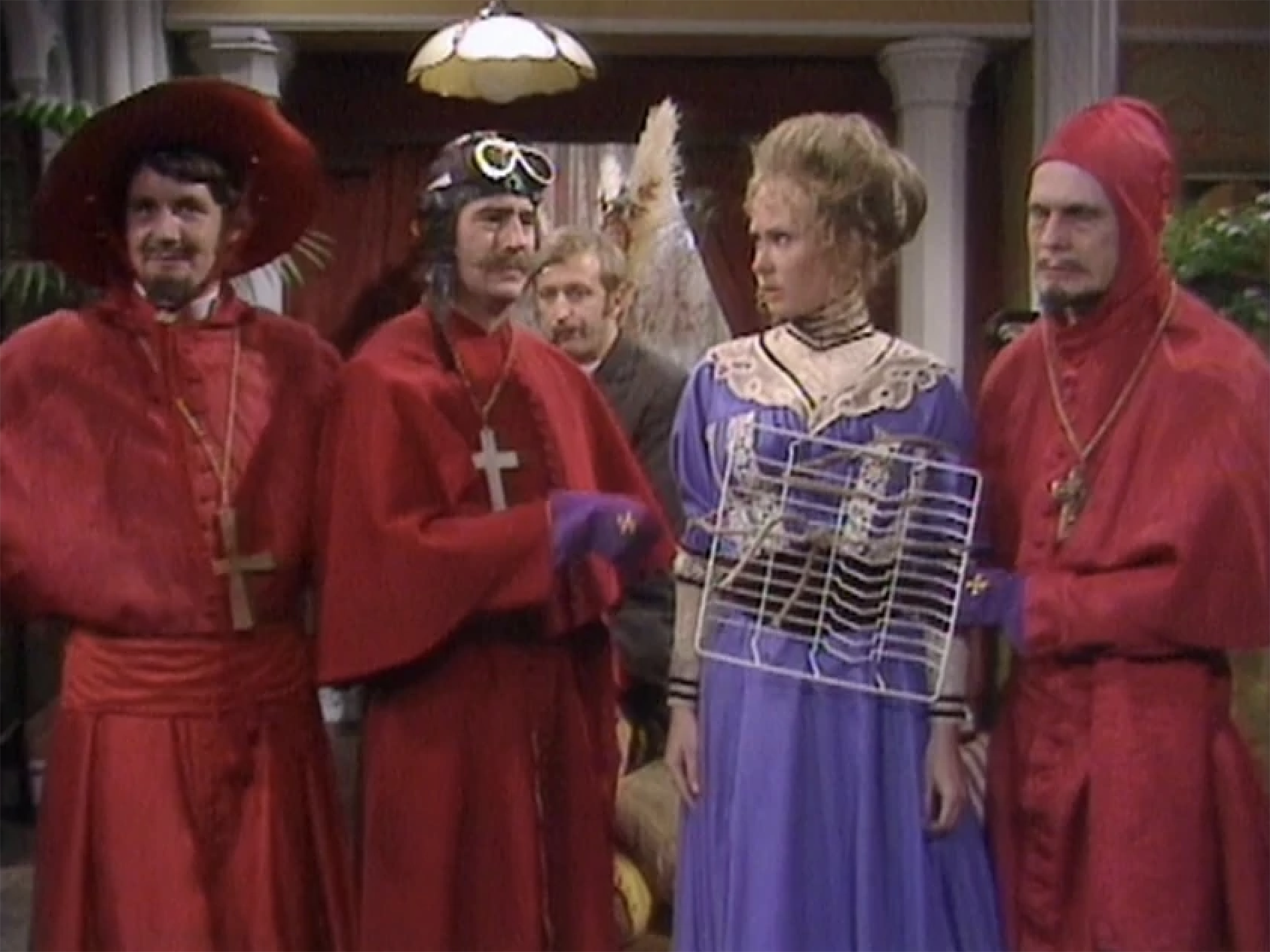They always expect the Spanish Inquisition: Why Madrid is fed up with film portrayals
It is not just the British who are annoyed at the way they are depicted in movies and on TV. A Spanish author has just written a book on things that upset Madrid about Hollywood, writes Graham Keeley


Religious fanatics, merciless conquistadors or pillaging pirates: this is how Hollywood has chosen to misrepresent Spaniards through the ages, a new book claims.
From Pirates of the Caribbean to Monty Python or even Harry Potter, they have all made Spaniards out to be the bad guys.
For decades, Hollywood has bent historical reality to fit an Anglo-Saxon myth about Spain’s past and present in films, videogames and television series, it claims.
Spanish stars from Antonio Banderas to Javier Bardem and Penélope Cruz have been content to play along with these characterisations of historical characters because of the all-powerful nature of the film industry in Hollywood.
Esteban Vicente Boisseau, author of Hollywood Against Spain, traced what he claims are negative references to Spain and its people over the past 100 years since the cinema business started.
He says this has its roots in the 16th-century between the Protestant kingdoms of northern Europe and the Catholic empire of Philip II, who reigned during the Golden Age of Spanish influence.
The Pirates of the Caribbean films, starring Johnny Depp as Jack Sparrow, are guilty of showing a stereotypical image of Spaniards, he claims.
In the 2011 film Pirates of the Caribbean: On Stranger Tides, the hero Jack Sparrow is asked by the king of England to find the source of youth before the “bitter Spanish king”, who is characterised with a dark beard, moustache and black hair.
“They are always showing us in a bad way, with the king in this film telling Jack Sparrow to bring him the source of youth, not a bad Spaniard,” Mr Boisseau tells The Independent.

In contrast, in the same film, one of the heroes is an Anglo-Saxon missionary with clear eyes and blond hair, showing the positive way English or American characters are portrayed.
“We are depicted as conquistadors, religious inquisitors or bullfighters. We have been educated in this narrative of Anglo-Saxon supremacy,” he argues.
Films depicting the Spanish Armada’s defeat at the hands of Sir Francis Drake omit to present the truth about the English seafarer, claims Mr Boisseau.
“It is always referred to as the ‘Invincible Armada’, but this phrase was invented by an Englishman. The defeat of the Armada is always shown as Drake’s doing, but in fact this may not have been the case at all,” he says.
“It may have had much more to do with the weather. And we are never shown that Drake himself was a pirate who sacked Spanish ports.”
More than 500 years after the defeat of the Armada in 1588, Drake is still referred to in Spain as La Pirata Drake – the Pirate Drake – for his attacks on Spanish colonial ports.
Monty Python’s famous sketch about the Spanish Inquisition – in which three characters repeat the line “nobody expects the Spanish Inquisition” – is still a popular online meme more than 50 years after it was first performed.
Mr Boisseau concedes the sketch is funny but says it leaves the impression that only Spain went through a period of religious fanaticism.
“It ignores the fact that a similar religious persecution was going on in Britain by Protestants against Catholics,” he says.
He admits he has not seen the Fawlty Towers depiction of the Spanish waiter Manuel, played by the late Andrew Sachs.
In Spain, the series continues to be hugely popular, but the character of Manuel is depicted as Mexican instead of a Spaniard.

Even Harry Potter presents Spaniards in a negative light, claims Mr Boisseau.
“The character of Dolores Umbridge uses a traditionally Spanish name and she is the main bad character in Harry Potter and the Order of the Phoenix,” he says.
He does not blame Spanish actors for taking roles in Hollywood that have helped their careers, but contends that this distils in people’s minds the idea that Iberians are often not positive characters, in much the same way as Germans or Russians are depicted.
“In the 2022 film Uncharted, which stars Antonio Banderas, he plays the bad guy. Also in some Indiana Jones films, the bad character is loosely a Spanish or Latin character while the good guys are always played by Harrison Ford or other Anglo-Saxon characters,” Mr Boisseau says.
The way the Spanish conquistadors, who conquered Latin America in the 16th century, are portrayed is at worst “ridiculous”, he adds.
“In the 2021 films Jungle Cruise and Eternals, conquistadors are seen as massacring Indians, while in other films such as Indiana Jones they are given a more positive image, as explorers,” he says.
Hollywood cannot resist cliched depictions of Spaniards either dancing flamenco or bullfighting, the writer says.
He points to the examples of The Simpsons running the bulls at San Fermin in Pamplona or Buzz Lightyear, the hero of Toy Story, dancing to flamenco.
Mr Boisseau, a lawyer who has studied history, suggests that the way the English-speaking film industry depicts Spain is part of the leyenda negra (black legend).

This is a historical theory contending that for centuries northern European countries have depicted Spain in a negative way.
“We have grown accustomed to this depiction of Spain and its history by Hollywood. I think people understand that this is going on, but Hollywood dominates the attention to such a degree that it is hard to counter,” Mr Boisseau says.
He says that African Americans managed to counter some of the worst portrayals of Black people in popular culture, but Spaniards have yet to challenge these stereotypes.
Join our commenting forum
Join thought-provoking conversations, follow other Independent readers and see their replies
Comments
Bookmark popover
Removed from bookmarks